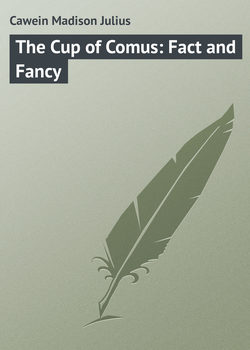Читать книгу The Cup of Comus: Fact and Fancy - Cawein Madison Julius - Страница 3
FOREWORD
ОглавлениеIt is with a sense of sadness and regret that this book, written by one who universally has endeared himself to lovers of nature through his revelation of her mysteries, must be prefaced as containing the last songs of this exquisite singer of the South.
When the final word is spoken it is fitting that it be by one of authority. William Dean Howells, in the pages of The North American Review, offers this tribute:
"I had read his poetry and loved it from the beginning, and in each successive expression of it, I had delighted in its expanding and maturing beauty. Between the earliest and the latest thing there may have been a hundred different things in the swan-like life of a singer … but we take the latest as if it summed him up in motive and range and tendency… Not one of his lovely landscapes but thrilled with a human presence penetrating to it from his most sensitive and subtle spirit until it was all but painfully alive with memories, with regrets, with longings, with hopes, with all that from time to time mutably constitutes us men and women, and yet keeps us children. He has the gift, in a measure, that I do not think surpassed in any poet, of touching some commonest thing in nature, and making it live, from the manifold associations in which we have our being, and glow thereafter with an indistinguishable beauty… No other poet can outword this poet when it comes to choosing some epithet fresh from the earth and air, and with the morning sun and light upon it, for an emotion or an experience in which the race renews its youth from generation to generation… His touch leaves everything that was dull to the sense before glowing in the light of joyful recognition."
With a tone of conviction Edwin Markham says:
"No other poet of the later American choir offers so large a collection of verse as Mr. Cawein does, and no other American minstrel has so unvarying a devotion to nature. And none other, perhaps, has so keen an eye, so sure a word for nature's magic of mood, her trick of color, her change of form. He is not so wild and far-flying as Bliss Carmen, nor so large and elemental as Joaquin Miller; but he is often as delicate and eerie as Aldrich, and sometimes as warm and rich as Keats in the April affluence of 'Endymion.'"
"Mr. Cawein's landscape is not the sea, nor the desert, nor the mountain, but the lovely inland levels of his Kentucky. His work is almost wholly objective. A dash more of human import mixed into the beauty and melody of his poetry would rank him with Lowell and the other great lyrists of our elder choir."
Some of the new poems portray a high moral passion, potent with the belief of life beyond, where his delicacy of vision penetrates the shadow and seems to have sighted the shore that has given his soul greeting "somewhere yonder in a world uncharted."
Clear, sure, and strong is the vocal loveliness and inevitable word with which this poet endears the little forms of life in the field of Faery. The "Song of Songs" (1913) could be characterized as prophecy, by one in whom seemed inherent the fatal instinct of the predestined. He sought for "Song to lead her way above the crags of wrong," and he gave
"Such music as a bird
Gives of its soul when dying
Unconscious if it's heard!"
And so he went, singing, to his "Islands of Infinity."
Rose de Vaux-Royer.
This edition is called the Friendship Edition, as it carries in its significance a testimonial of love and admiration for the author, extended by those who wish his last collected poems preserved for futurity.
Acknowledgment is due W. D. Howells, The North American Review, The Macmillan Co., Clinton Scollard and Edwin Markham for their courtesy.
